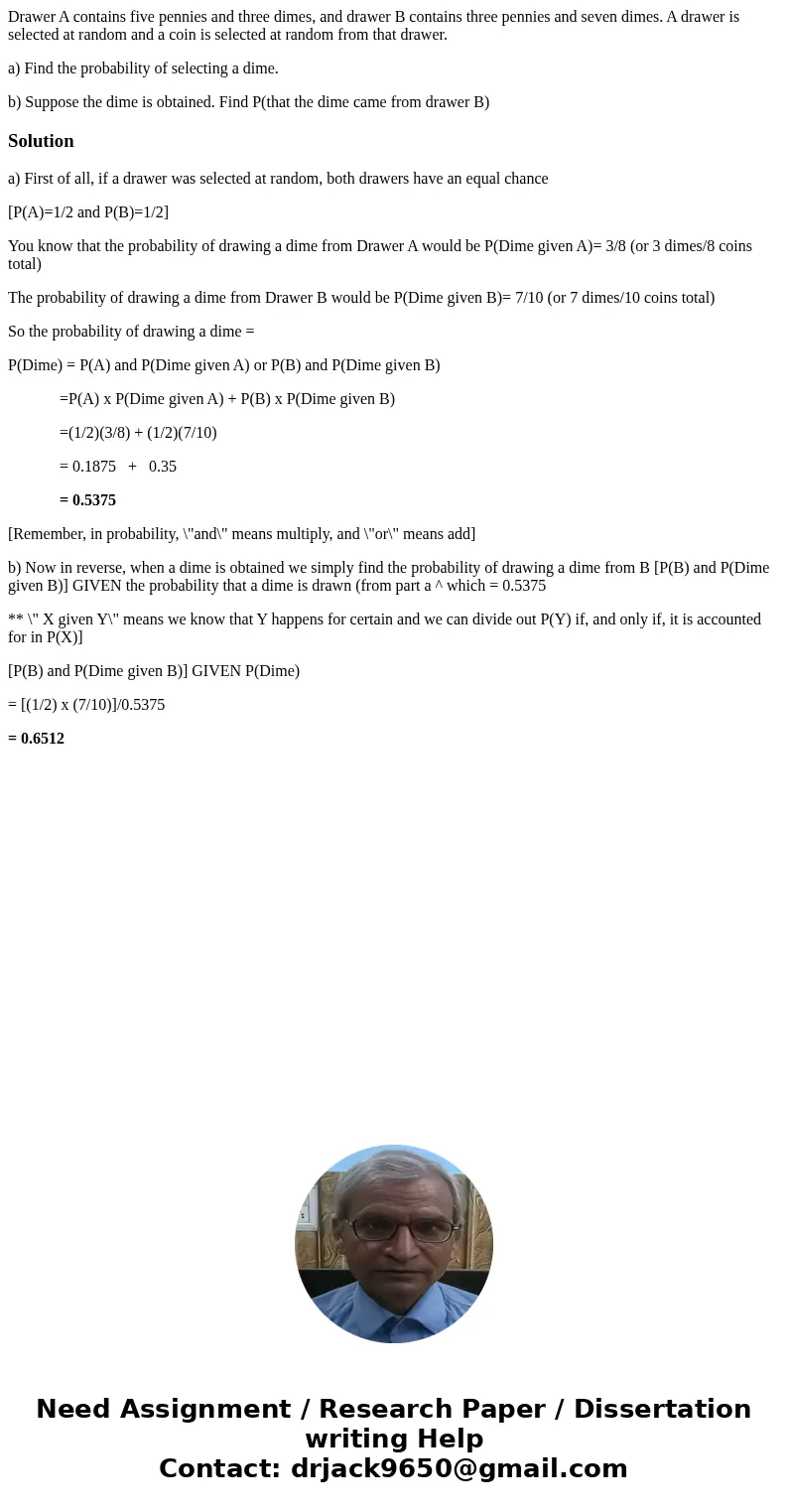Drawer A contains five pennies and three dimes and drawer B
Drawer A contains five pennies and three dimes, and drawer B contains three pennies and seven dimes. A drawer is selected at random and a coin is selected at random from that drawer.
a) Find the probability of selecting a dime.
b) Suppose the dime is obtained. Find P(that the dime came from drawer B)
Solution
a) First of all, if a drawer was selected at random, both drawers have an equal chance
[P(A)=1/2 and P(B)=1/2]
You know that the probability of drawing a dime from Drawer A would be P(Dime given A)= 3/8 (or 3 dimes/8 coins total)
The probability of drawing a dime from Drawer B would be P(Dime given B)= 7/10 (or 7 dimes/10 coins total)
So the probability of drawing a dime =
P(Dime) = P(A) and P(Dime given A) or P(B) and P(Dime given B)
=P(A) x P(Dime given A) + P(B) x P(Dime given B)
=(1/2)(3/8) + (1/2)(7/10)
= 0.1875 + 0.35
= 0.5375
[Remember, in probability, \"and\" means multiply, and \"or\" means add]
b) Now in reverse, when a dime is obtained we simply find the probability of drawing a dime from B [P(B) and P(Dime given B)] GIVEN the probability that a dime is drawn (from part a ^ which = 0.5375
** \" X given Y\" means we know that Y happens for certain and we can divide out P(Y) if, and only if, it is accounted for in P(X)]
[P(B) and P(Dime given B)] GIVEN P(Dime)
= [(1/2) x (7/10)]/0.5375
= 0.6512

 Homework Sourse
Homework Sourse